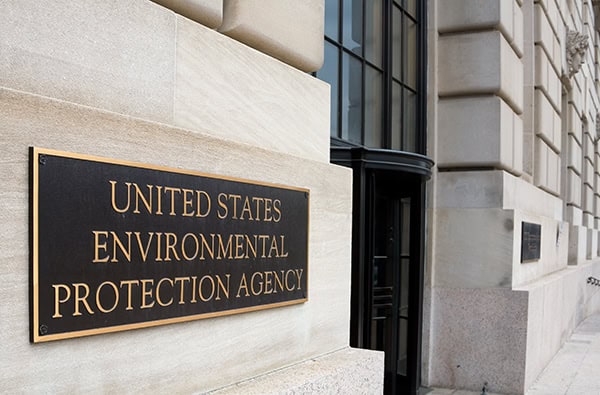House Committee Approves PBM Reforms

The House Ways and Means Committee unanimously passed legislation Wednesday that includes much-needed reforms to pharmacy benefit managers, underregulated middlemen that raise health care costs for manufacturers and manufacturing workers (Fierce Healthcare).
What’s going on: PBM reforms contained in the Preserving Telehealth, Hospital and Ambulance Access Act include increasing transparency into PBMs’ business practices and delinking PBM compensation from medicines’ list prices. These changes will help reduce prices for seniors who rely on Medicare prescription drug plans.
- The NAM has been instrumental in advancing these reforms.
Why it’s important: “When Americans face soaring prices for medicines or treatments, there’s a good chance that is because a PBM has driven up the price,” NAM President and CEO Jay Timmons said Wednesday.
- “These middlemen operate with minimal transparency, and their practices distort the market, increasing the list prices patients pay for medicines while making it more difficult for manufacturers to offer quality, affordable health care benefits.”
What’s next: The legislation approved Wednesday applies to the Medicare market. The NAM is calling on Congress to enact similar changes in the commercial insurance market to lower health care costs for manufacturing employees who participate in employer-sponsored plans.
Manufacturers Commend House Ways and Means Committee’s Efforts Toward Comprehensive PBM Reform
Bill Would Protect Seniors and Set the Stage for Broader Reforms
Washington, D.C. – Following the House Ways and Means Committee’s unanimous approval of legislation to reform pharmacy benefit managers—middlemen who unfairly increase the prices that patients pay at the pharmacy counter by controlling negotiations between insurers and biopharmaceutical manufacturers—in Medicare markets, National Association of Manufacturers President and CEO Jay Timmons released the following statement:
“The NAM commends the Ways and Means Committee for unanimously taking a powerful step toward reforming the PBM system and lowering the cost of health care for all Americans.
“When Americans face soaring prices for medicines or treatments, there’s a good chance that is because a PBM has driven up the price. These middlemen operate with minimal transparency, and their practices distort the market, increasing the list prices patients pay for medicines while making it more difficult for manufacturers to offer quality, affordable health care benefits.
“By increasing transparency into PBMs’ business models and delinking their compensation from a medicine’s list price, these critical PBM provisions will significantly reduce costs for seniors who rely on Medicare for health care coverage. Congress should advance these important reforms.
“In addition, manufacturers encourage Congress to enact similar reforms in the commercial insurance market to bring down health care costs for manufacturing workers participating in employer-sponsored plans.”
-NAM-
The National Association of Manufacturers is the largest manufacturing association in the United States, representing small and large manufacturers in every industrial sector and in all 50 states. Manufacturing employs nearly 13 million men and women, contributes $2.89 trillion to the U.S. economy annually and accounts for 53% of private-sector research and development. The NAM is the powerful voice of the manufacturing community and the leading advocate for a policy agenda that helps manufacturers compete in the global economy and create jobs across the United States. For more information about the NAM or to follow us on Twitter and Facebook, please visit www.nam.org.
NAM First-of-Its-Kind AI Report Includes Policy Recommendations

Artificial intelligence is improving efficiency, workplace safety, product development, machine maintenance and supply chain logistics at manufacturing facilities everywhere, according to a new, first-of-its-kind report from the NAM.
What’s going on: “Working Smarter: How Manufacturers Are Using Artificial Intelligence,” released today, details use cases for AI in the sector, discussing how manufacturers nationwide are using it to improve lives everywhere.
- The report features deep dives on AI-powered technologies at manufacturers, including Johnson & Johnson, Schneider Electric and Hitachi.
Trailblazers need good policy, too: “From developing more effective clinical trials and improving workplace safety to strengthening supply chain resiliency and supporting workforce training for employees, AI is unlocking new opportunities to strengthen our modern manufacturing workforce and improve the lives of all Americans,” said NAM President and CEO Jay Timmons. “Congress and the Biden administration can support manufacturers’ adoption of AI by enacting strong data privacy protections, investing in workforce training and providing regulatory certainty.”
- Legislators should “lean on” manufacturers’ deep experience when drafting AI-related legislation, added Johnson & Johnson Executive Vice President and Chief Technical Operations & Risk Officer and NAM Board Chair Kathy Wengel.
- “All possible futures for modern manufacturing in the U.S. involve AI,” she said. “Policymakers must develop sensible, carefully thought-out frameworks for various AI applications. … We need a policy environment that supports innovation and growth in manufacturing AI, because it will bolster U.S. competitiveness and leadership in this critical emerging field.”
The recommendations: The report contains immediately implementable policy recommendations for lawmakers:
- Invest in research and development and career technical education institutions to train the modern manufacturing workforce.
- Pass federal privacy legislation to advance individuals’ privacy protections and give legal clarity that will support continued innovation by manufacturers.
- Use a risk-based approach to new AI regulations that tailors any future laws to specific use cases and minimizes the burden of compliance.
- Ensure that AI regulation is aligned globally.
FAA Authorization Moves Forward

In a bipartisan vote Wednesday, the Senate moved to advance Federal Aviation Administration reauthorization—but lawmakers still face a looming deadline to pass the legislation (The Hill).
What’s going on: “Senators voted 89 to 10 to overcome the first procedural hurdle and move toward consideration of the package ahead of the May 10 deadline.”
- The draft 1,069-page bill—which already has been punted three times—sets the agency’s priorities. It would authorize billions of dollars in appropriations for the FAA, as well as hundreds of millions of dollars for the National Transportation Safety Board, from fiscal year 2024 through 2028.
- But all 100 senators must agree to fast-track the measure for it to pass before next Friday.
Why it’s important: The FAA reauthorization bill renews statutes governing the agency’s civil aviation programs, as well as revenue collection authority. From air traffic operations to airport development, these functions are critical to the U.S. economy and the ability of Americans to travel.
However . . . Both Democrats and Republicans want amendment votes on the measure, and “lawmakers acknowledge it could be a bumpy ride” to passage.
A hot-button issue: One sticky wicket amendment that’s likely to get a vote would remove language in the bill that adds 10 flights at Ronald Reagan Washington National Airport.
- Senators from the Washington, D.C., area say the airport cannot handle any more traffic. Virginia and Maryland are home to Dulles International Airport and Baltimore Washington International Airport, respectively.
NAM and Allies: PM2.5 Standard Will Hurt Manufacturers, Economy

The EPA’s overly stringent final rule on particulate matter puts continued U.S. innovation and economic growth in jeopardy, the NAM and allied groups told congressional leaders Monday.
What’s going on: In February, the EPA lowered the standard for particulate matter, or PM2.5, in its National Ambient Air Quality Standards rule by 25%, down from 12 micrograms per cubic meter of air to nine.
- This week, the NAM, along with 58 allied organizations, urged key House and Senate members to act soon to “stop this harmful rule before it takes effect.”
Why it’s important: The probable negative effects of allowing the change include “making it more difficult to create jobs, build cutting-edge factories and lead the world in the development of products that will shape modern life in the decades ahead,” the groups said.
- Compliance costs could exceed $1.8 billion, according to the agency’s own estimates.
- The lowered limit also puts the U.S. at a great disadvantage to global competitors, which “have adopted standards that are less stringent than the EPA rule and are phased in over a much longer time frame.”
What needs to happen: Congress should pass a resolution of disapproval regarding the new standard immediately.
House Committee Forms Working Groups to Revive Tax Provisions

Following a steady drumbeat of advocacy by the NAM, the House Committee on Ways and Means has formed tax working groups dedicated to finding legislative solutions to the scheduled expiration of pro-growth tax policies at the end of 2025.
What’s going on: Each of the 10 working groups will focus on an area of the economy that will be affected by the sunsetting of certain measures in the Tax Cuts and Jobs Act.
- Ways and Means Committee Vice Chairman Vern Buchanan (R-FL) was selected to lead the American Manufacturing tax working group.
- The members of Congress assigned to this team will examine the effects of pro-growth tax policies on the manufacturing sector.
Why it’s important: “Tax reform was rocket fuel for manufacturers: 2018, the first year the Tax Cuts and Jobs Act was in effect, was the best year for manufacturing job creation in the previous 21 years,” said NAM Managing Vice President of Policy Chris Netram. “But those gains are at risk as key tax provisions expire, making it more difficult for companies throughout the supply chain to hire, invest and grow. Congress must build on the promise of tax reform to ensure that manufacturing in America remains strong.”
- Earlier this month, Husco President and CEO and NAM Executive Committee member Austin Ramirez testified before the House Ways and Means Committee about the TCJA’s positive effect on manufacturing growth and the need for Congress to preserve the pro-growth business provisions of that legislation.
- Their expiration “mean[s] that pass-through businesses like Husco will have more of our income subject to a higher rate of tax,” Ramirez said. “At the same time, the pass-through deduction will expire completely, doubling down on the tax hikes that we face. … [A]llowing tax reform to sunset will undermine much of the progress we’ve made since 2017.”
What we’re doing: The NAM will be engaging with each of the tax working groups over the next several months to ensure that manufacturing-critical tax provisions are extended and reinstated.
- To get involved, reach out to NAM Senior Director of Tax Policy Alex Monié.
EPA’s Power Plant Rule Is Unachievable Without Substantial Permitting Reform
America’s Energy Security Is Threatened
Washington, D.C. – Following the release of the Environmental Protection Agency’s new regulations on greenhouse gas emissions standards for certain power plants, National Association of Manufacturers President and CEO Jay Timmons released the following statement:
“Manufacturers appreciate the EPA removing existing gas plants from its new regulation, following manufacturers’ warnings about the initial proposal. However, the rest of the rule causes serious concern because Congress and the president have not enacted permitting reform—making it impossible to achieve the EPA’s highly aspirational mandates. We call on Congress to get serious by enacting significant and meaningful permitting reform this year. That is essential to ramping up the use of renewables, carbon capture, hydrogen and nuclear, for example, to meet future demand.
“The final rule threatens grid reliability because of the unrealistic timeline for power plants to adopt technologies within the next 10 years that have yet to even be proven at scale. Our nation should be doing everything possible to make sure our families, businesses and manufacturers have a modern, strong and reliable electrical grid, especially at a time when global turmoil threatens our energy security. This new rule does the opposite, creating a threat to our national and economic security that literally could leave Americans in the dark and factories offline. In short, the EPA is rolling the dice with Americans’ electricity and therefore with President Biden’s manufacturing legacy.
“Our industry has made transformational investments in these technologies and clean energy solutions, and we are leading the way in their deployment. The EPA should be partnering with us—not undermining this progress. We will continue to press the administration to achieve a more balanced regulatory framework to help reach our climate goals.”
-NAM-
The National Association of Manufacturers is the largest manufacturing association in the United States, representing small and large manufacturers in every industrial sector and in all 50 states. Manufacturing employs nearly 13 million men and women, contributes $2.89 trillion to the U.S. economy annually and accounts for 53% of private-sector research and development. The NAM is the powerful voice of the manufacturing community and the leading advocate for a policy agenda that helps manufacturers compete in the global economy and create jobs across the United States. For more information about the NAM or to follow us on Twitter and Facebook, please visit www.nam.org.
Noncompete Ban Would Disrupt Manufacturing in the U.S.

The Federal Trade Commission’s vote this week to prohibit noncompete agreements between employers and their employees threatens manufacturing in the U.S., the NAM said Tuesday.
What’s going on: In a 3–2 vote Tuesday, commissioners finalized a rule that, like a draft version circulated last year, “would deem practically any noncompete clauses for paid staff, independent contractors and unpaid workers to be an unfair method of competition rendered unenforceable, and [would require] employers to tell current and former employees they’ve stopped enforcing them” (Law360, subscription).
- The final rule is set to go into effect 120 days after it is published in the Federal Register, but lawsuits have been filed against it already, and additional legal action is expected.
What’s changed: One change made to the final rule following the receipt of more than 26,000 comments on it allows existing noncompete agreements with senior-level executives to remain in effect.
- Another difference between the rule’s prior iteration and the final is to the ban’s sole exception. The draft “permitted noncompetes for individuals selling their business or a substantial stake of at least 25%.” That threshold is not in the final version.
Why it’s problematic: The rule “is unprecedented and threatens manufacturers’ ability to attract and retain talent,” said NAM Managing Vice President of Policy Chris Netram.
- “In addition, [it] puts at risk the security of intellectual property and trade secrets—anathema to an industry that accounts for 53% of all private-sector R&D.”
- A noncompete ban would disrupt the majority of U.S. manufacturing operations, a 2023 NAM survey found.
What’s next: The NAM is considering all options in response to the final rule and is in active discussion with congressional leadership and the relevant committees of jurisdiction.
New Overtime Rule Will Cost Employers and Workers

A new final overtime rule from the U.S. Department of Labor will reduce flexibility for employees and could force manufacturers to make difficult choices about their workforces, the NAM said Tuesday.
What’s going on: The new regulation “changes the salary threshold used to determine whether a worker is exempt from overtime pay” so that, beginning Jan. 1, 2025, most employees earning less than $58,656 will be owed time-and-a-half wages for hours worked over 40 in a single workweek (Bloomberg Law, subscription).
- The current salary threshold is $35,568.
- The new rule will go into effect July 1, following publication in the Federal Register.
Why it’s problematic: The change promises to present significant challenges to employers and employees alike.
- “Quarter after quarter, manufacturers cite workforce issues, such as attracting and retaining skilled employees, as their biggest business challenge,” said NAM Managing Vice President of Policy Chris Netram. The “rule places new constraints on employers, reduces flexibility for the workers who will be reclassified and may force companies to make painful choices that limit both job creation and growth opportunities available to employees.”
What’s next: The NAM is weighing all actions to protect manufacturers across the country.
Manufacturers: Noncompete Decision Threatens Manufacturers’ Ability to Protect IP
Washington, D.C. – Following the Federal Trade Commission’s vote in favor of a rule that would prohibit employers and their employees from entering noncompete agreements, National Association of Manufacturers Managing Vice President of Policy Chris Netram released the following statement:
“The FTC’s rule banning noncompete agreements is unprecedented and threatens manufacturers’ ability to attract and retain talent. In addition, today’s action puts at risk the security of intellectual property and trade secrets—anathema to an industry that accounts for 53% of all private-sector R&D.
“An NAM survey found that 66% of respondents—manufacturers of all sizes—said the ban would interfere with their operations, and nearly half said it would impact employee training programs. The ban could force manufacturers to revamp their human capital operations completely, enact burdensome controls or silo parts of their operations from each other, which would result in less training for employees, less collaboration, less innovation and less efficiency. The NAM will weigh all options in response to the commission’s vote, so that well-paying manufacturing jobs and innovation are not compromised.”
-NAM-
The National Association of Manufacturers is the largest manufacturing association in the United States, representing small and large manufacturers in every industrial sector and in all 50 states. Manufacturing employs nearly 13 million men and women, contributes $2.89 trillion to the U.S. economy annually and accounts for 53% of private-sector research and development. The NAM is the powerful voice of the manufacturing community and the leading advocate for a policy agenda that helps manufacturers compete in the global economy and create jobs across the United States. For more information about the NAM or to follow us on Twitter and Facebook, please visit www.nam.org.
